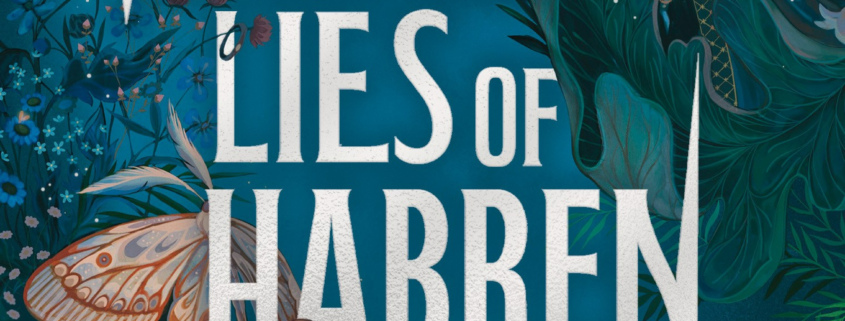The Wicked Lies of Habren Faire by Anna Fiteni
Debut author, Anna Fiteni, shares some insights into writing her debut novel, The Wicked Lies of Habren Faire.

When writing and edition my debut novel, The Wicked Lies of Habren Faire, one of the most important aspects to consider was the use of the Welsh language. I’m not fluent so I really had to make that GCSE A* I got ten years ago work for itself, but when I started writing a YA book about a young Welsh girl, Sabrina, who follows her sister in Gwlad Y Tylwyth Teg (Fairyland) and has to make a bargain to survive the dangerous new world, I knew the Welsh language would have to be featured. We worked with a Welsh language editor, but questions still arose about how the book would land with readers who aren’t familiar with Welsh at all. However, there’s one Welsh word that many people have heard of, even if they don’t know where it comes from, or what it truly means.
Every now and then, you’ll see an article or blogpost pop up online collating words from around the world that have no direct translation to English. Schadenfreude, komorebim, l’appel du vide. Among them, you’ll often find hiraeth. It’s a lovely word, it sounds nice to the ear – you can almost feel the melancholy dripping off it. The closest translation we’ve got for hiraeth is this; a yearning for a Wales that no longer exists, and perhaps never did. This translation has, however, been watered down to a sense of general homesickness, nostalgia, or a missing a place you cannot go to. Wales disappears from the story.
Now, you can find Hiraeth used on mugs, clothing brands, as shop names. It’s a particular favourite to print on bookish trinkets, taken to mean a longing to go to a fantasy world. Wales is erased from the definition. I find this disheartening as it could be argued that there have many attempts to erase Wales itself from history. We’ve long been a part of the United Kingdom, arguably could be seen as England’s first colony, and our language has faced many attempts to legislate it out of existence. The survival of the Welsh language and our unique culture and identity has been the tireless work of the generations who came before me, and the generations yet to come. You see, then, why a word like hiraeth arose from our little country. The Wales we dream of, that we hope for, never had a chance to exist. And yet, we’re always striving towards it.
So, when a word deeply rooted in Welsh history – particularly our history of being ignored and treated as nothing more than another part of England – is taken to reflect general homesickness or even a desire to escape into a fantasy world, I find it rather irritating. Wales isn’t a fantasy; against the odds, we’re still here, working hard for a brighter future. Hiraeth, alongside many elements from our language, history and folklore, have been used without acknowledgement in fantasy publishing for years. In writing The Wicked Lies of Habren Faire, I wanted to highlight Wales’ influence on the fantasy genre, while also exploring my own feelings about coming from such a small yet complicated country. I don’t know if what I feel is hiraeth, precisely, but I know I was homesick when I lived in England. I know I was shocked when I learnt how little my peers knew about the country next door. I was desperate to be a child again, to go back to a happier, safer time. To go back to the Wales of my memory – a Wales that, now I’m grown up, no longer exists.



